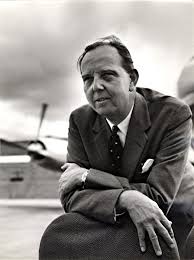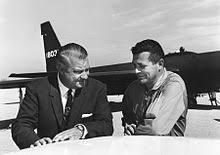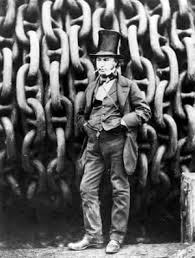Blog
“Not Much of an Engineer” - what makes a good engineer
I would like to think that in your chosen profession there are
inspirational proponents that drive you on and set a benchmark
you can aspire too. I always wanted to be an engineer. I grew
up in the late 60s and early 70s inspired by some amazing
engineering achievements. Apollo, Concorde and SR-71 to name
but a few. My father was also an engineer in the admiralty
research department of Yarrows shipbuilders. That meant that
as child I got to see several naval warship ship launches on
the Clyde. What more influence do you need than those icons
and wanting to be just like your dad? It’s the engineers
behind incredible products that I find intriguing and
understanding them and how they achieved what they did. What
made them so astonishingly good and why did they succeed where
others didn’t fair so well?
I spent just short of 34 years at Rolls-Royce; mostly around
jet engines. The legendary Engineer in that world was Sir
Stanley Hooker who’s life achievements are shared in his
autobiography “Not Much of an Engineer”*. Hooker was a
Mathematician (hence the title of the book) who amongst other
things led the supercharging of the Merlin, devised the
Pegasus engine for the Harrier jump jet and rescued the RB211
and thus Rolls-Royce from bankruptcy. His achievements were
quite astonishing and it would be a dis-service not to look
into what constitutes the key characteristics of a good (if
not great) Engineer.

Sir Stanley Hooker
In leading teams in the past I looked into what engineering is
really all about and consequently what traits make an engineer
good. I found two great pieces that I have subsequently used
time and again with the RR community and in lecturing students
and early career engineers and they are well worth sharing
with as many people as possible
The best definition of engineering I came across was from
Gordon Stanley Brown who was the Dean of MIT School of
Engineering from 1959 -1968. He contended the following:
“Engineering is not merely knowing and being knowledgeable,
like a walking encyclopedia; engineering is not merely
analysis; engineering is not merely the possession of the
capacity to get elegant solutions to non-existent engineering
problems; engineering is practicing the art of the organized
forcing of technological change... Engineers operate at the
interface between science and society.”
In short he was pointing out that Engineering was really about
applying science and technology for the progress and good of
society. Without that impact, the engineer has not really done
his or her job. This therefore implies that there is much more
to being a good engineer than just being good at your
’speciality”. I came across a list of ten attributes which I
think capture the essence of what it takes. The list is
attributed to Dean Borgman who was president of Sikorsky
Aircraft from 1998 to 2004. I see this as the best list of
attributes that I have seen. I am sure everyone will assess
themselves against the criteria and could name an Engineer
that they think best displays each attribute. I have offered
my choice alongside each:
- Technical Competence – master of their technical discipline (Werner Von Braun - Apollo F1 engine, the rocket scientist’s rocket scientist)
- Bias To Action – balance analysis vs. action (Barnes Wallis - R110, Bouncing bomb, supersonics and swing wings)
- Confidence – when facing uncertainty (Kelly Johnson - skunk works, U2, SR-71, C130, F117)
- Creativity – open minded, explore less obvious solutions (Leonardo Da Vinci - parachute, tank, flying machines before they were all feasible)
- Clear Communication – to engineers and non-engineers (William Edward Demming - the father of quality management)
- Spirit of Collaboration – group not individual success (Colin Chapman - lotus F1 with Jim Clark, “add lightness", pioneered car aerodynamics, Cosworth relationship and sponsorship in sport)
- Broad Perspective – thinks big picture (Elon Musk - Tesla, Space X, Solar City - electrification of transport backed by renewables and colonising Mars)
- Business Savvy – makes the most from limited resources (Henry Ford - Pioneered mass production, introduced financing, welfare capitalism)
- Persuasiveness – in managing requirements and customer (Steve Jobs - convinced us all we needed the iPod and the iPhone)
- Optimism – counter setbacks with persistence and determination (Isambard Kingdom Brunel - bridges, railways, boats, hospitals)

Kelly Johnson (left - with Gary Powers and U2)

Isambard Kingdom Brunel
Some one added an 11th to the list - Humility. Engineering is
after all a team sport and knowing that you do not have all
the answers and that other people and sources of information
are needed is the additional “magic ingredient”. (Steve
Wozniak is my example in this case - developed Apple 1 and 2,
the inspiration at Apple following Jobs’ return, ethical
hacking, tech for education….). If you find yourself needing
some help and answers on anything V&V, please demonstrate the
last characteristic and don’t hesitate to get in touch!
I hope that you found this thought provoking. I will look at
Kelly Johnsons “Rules of the Skunk Works” and agile
development in my next blog.
